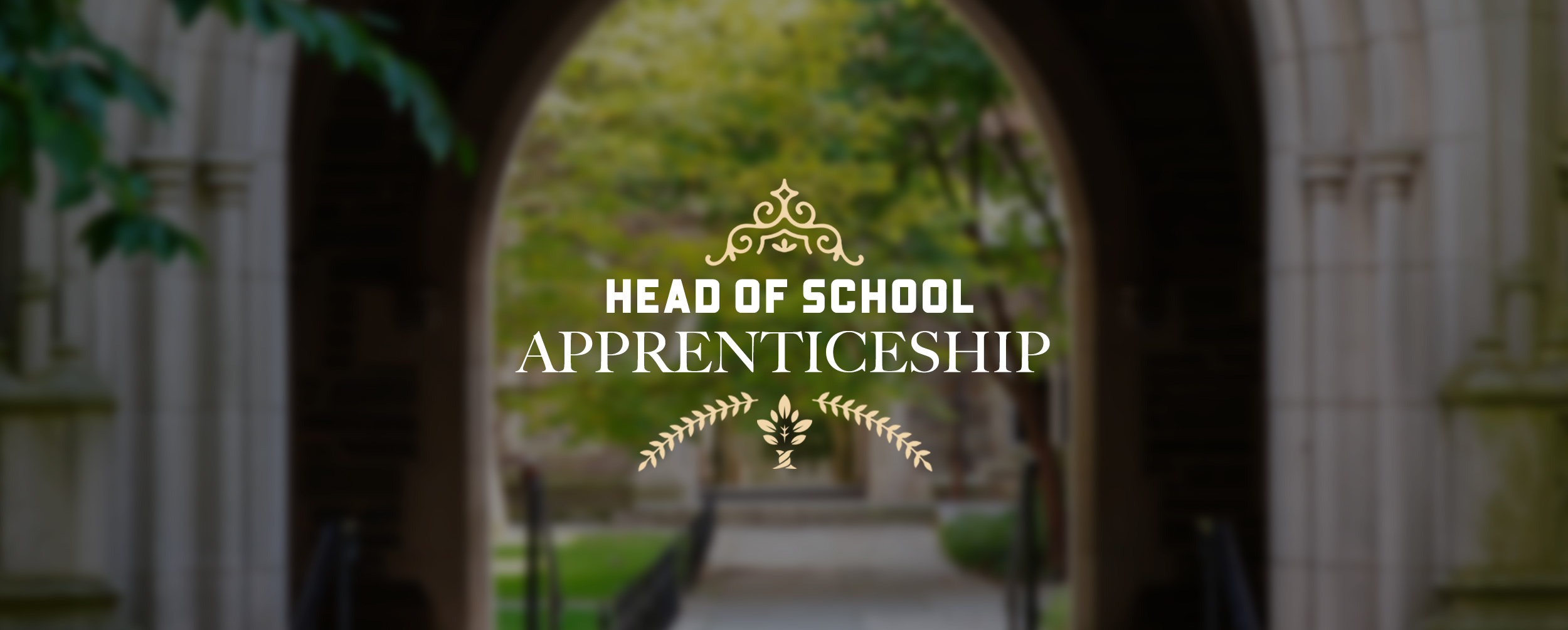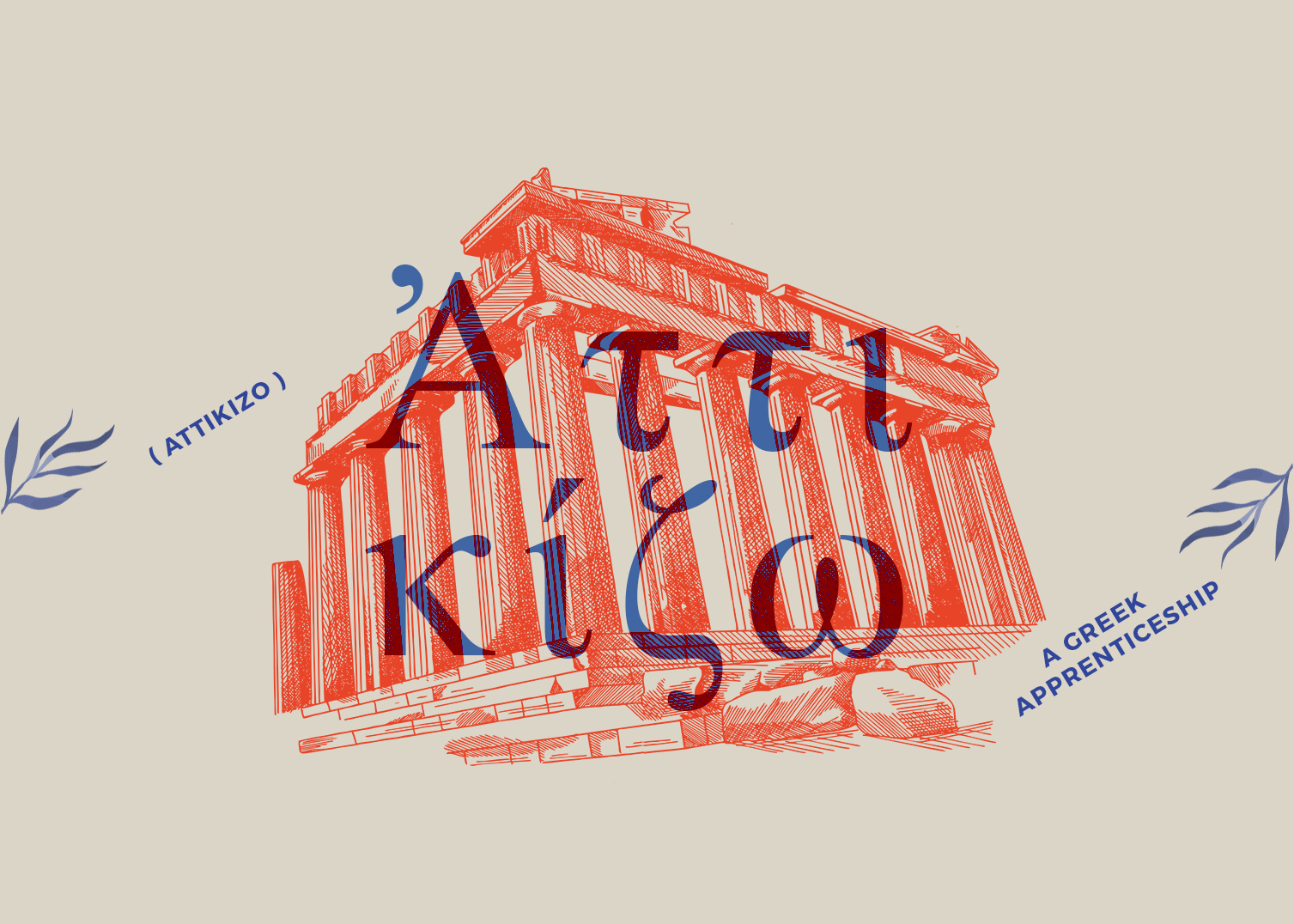The Apprenticeship is our Heart.
For over 15 years the CiRCE Apprenticeship has been equipping teachers to understand the nature and principles of classical education, and showing how those principles can be brought back to any classroom.
Crafted for active teachers, this part-time development program meets twice a year in person plus twice a month over zoom for the course of three years to cultivate the craft of teaching.
Registration for the 2024-2025 are now open!
Space will be limited.
Applications received by March 31st will be considered in the first round of seating.
Applications will continue to be considered monthly as seating allows.

See what the Apprenticeship entails
What is the Apprenticeship?
“The supreme task of education is the cultivation of the human spirit to teach the young to know what is good, to serve it above self, and to reproduce it.” – David Hicks
The CiRCE Institute’s Apprenticeship Program is an in-depth, personal teacher development community in which a Master Teacher mentors a small group of educators in classical rhetoric and classical modes of instruction. It’s founded on the idea that to feed students properly teachers must feed themselves.
With mentorship and community at its core, it’s a program for teachers (from all walks of life) who want to drink deeply from the wisdom of the ages, engage in inspiring conversation with like-minded friends, and push hard towards Truth, Wisdom, and Virtue.
How the Apprenticeship Works
The Apprenticeship program meets twice a year in person plus twice a month over zoom for the course of three years to cultivate the craft of teaching.
If completed in full, the CiRCE Apprenticeship is a three-year program. In the spring of the first year, apprentices decide whether to continue for an additional two years as journeymen. Journeymen help mentor and assess first-year apprentices. Upon successful completion of the program, journeymen become CiRCE Certified Classical Teachers.
Head mentors assess apprentices on their participation, teaching, and writing. In December and May they offer individual evaluations, providing specific feedback with suggestions for improvement.
The mentor/apprentice relationship–and the community that springs out of it–is the very heart of the program. Each of our seven groups is kept small so that mentors and apprentices can truly know each other.
The mentors guide the apprentices by providing assessment that blesses them, accountability that strengthens them, and regular discussions that nurture them. The environment is welcoming and safe, the community develops over shared meals and stories, the pedagogy is founded on Christian classical education forms, and the assessment is for the apprentice to flourish. These are the things that set this teacher training program apart.
Requirements for Certification
• Attend six retreats (one summer and one winter each year)
• Teach lessons at the retreats from the Lost Tools of Writing
• Teach lessons at home from the Lost Tools of Writing
• Attend two webinars each month, September through May
• Complete requisite assigned writing assignments
• Implement mimetic instruction at home or in the classroom
• Read all assigned literature
• Pass biannual evaluations
• Mentor a first-year apprentice
• Prepare and teach an original mimetic lesson at a retreat
• Lead a Socratic discussion
• Fulfill all payment obligations
19
Years
250+
Apprentices
7
Groups

COMMON QUESTIONS
Apprentices attend two retreats each year: a 5-day summer retreat and a 4-day winter retreat. The summer retreat initiates a year-long journey with fellow apprentices and the Head Mentor and is held at the end of July or early August at a location determined by the Head Mentor. Apprentices MUST be present for the duration of the retreat. The winter retreat is held during a week in February determined by the Head Mentor. Both retreats are refreshing times of learning, fellowship, and camaraderie.
“The August and February retreats are some of the best parts of the Apprenticeship. Spending a week with your fellow apprentices not only helps you bond together as a friends, but also gives you greater opportunities to learn from each other’s strengths. There is no better way to learn mimetic pedagogy than to spend a week watching mimetic lessons and teaching one of your own. The banquets are true moments of leisure and celebration of the fruits of a challenging week’s honest labors!”
– Jacob, an apprentice from Florida
///
Each year apprentices attend two retreats, a 5-day summer retreat and a 4-day winter retreat. They also participate in regular webinar discussions. The summer retreat initiates a year-long journey with fellow apprentices and the Head Mentor. It is held at the end of July/early August at a location determined by the Head Mentor. Apprentices MUST be present for the duration of the retreat. During the summer retreat, each apprentice observes, teaches, and assesses a mimetic lesson drawn from The Lost Tools of Writing.
The winter retreat is held sometime in February (each group’s mentor will choose a week). Once again, each apprentice observes, teaches, and assesses a mimetic lesson drawn from The Lost Tools of Writing. Both retreats are refreshing times of learning, fellowship, and camaraderie.
Apprentices should expect to cover their own travel, lodging, and personal expenses.
Each month, September through May, the Head Mentor meets with participants in a 90-minute live webinar. Apprentices and journeymen attend separate webinars. A third webinar brings the apprentices and journeymen together to discuss the reading. Each new apprentice is assigned a mentor from among the journeymen to assist them throughout the year. Apprentices meet with their journeyman-mentors once each month, and more frequently if needed.
///
WEBINAR TIMES
East Coast (Bianco) – Wednesdays, 3:30-5 EST
Appalachian (Holler) – Tuesdays, 4-5:30 EST
East Coast (Shirley) – Tuesdays, 3:30-5 EST
Mid-Atlantic (Mooradian) – Wednesdays, 5:30-7 EST
Gulf Coast TX (Mathis)– Tuesdays, 4:30-6 CST
Midwest OH (Rychener) – Thursdays, 4-5:30pm EST
Rocky Mountain (Lipinski) – Wednesdays, 3:30-5pm MST
SUMMER RETREATS
East Coast (Bianco) NC — July 29 – Aug 2
Appalachian (Holler) TN — July 29 – Aug 2
East Coast (Shirley) NC — July 29 – Aug 2
Mid-Atlantic PA — Aug 5-9
Gulf Coast TX — Aug 5-9
Midwest OH — July 29 – Aug 2
Rocky Mountain CO — July 29 – Aug 2
WINTER RETREATS
East Coast (Bianco) NC — Feb 12-15
Appalachian (Holler) TN — Feb 26 – Mar 1
East Coast (Shirley) NC — Feb 12-15
Mid-Atlantic MD — Feb 19-22, 2025
Gulf Coast TX — Feb 12-15
Midwest OH — Feb 19-22
Rocky Mountain — Feb 5-8, 2025.
Airport Cities to reach Retreat Locations
East Coast (Bianco) NC – Charlotte, NC
Appalachian (Holler) TN – Knoxville, TN
East Coast (Shirley) NC – Kernersville, NC
Mid-Atlantic (Mooradian) – Philadelphia, PA in Aug and Baltimore, MD (or possibly remaining in Philadelphia) in Feb
Gulf Coast TX (Mathis) – Dallas, TX (Love Field) for Fairfield, TX
Midwest OH (Rychener) – In Ohio, 1 hour from Cleveland or Detroit airports
Rocky Mountain (Lipinski) – Denver, CO in Aug and Phoenix, AZ in Feb
The Apprenticeship curriculum operates on a three-term rotation in which each term corresponds with one academic year. Thus every apprentice completing three consecutive years will cover all of the selected literature. For example, an apprentice who joins during Term B advances to Term C and concludes with Term A. Each term works through The Lost Tools of Writing, Norms and Nobility, and three selections from classical literature. Additionally, apprentices teach The Lost Tools of Writing weekly at home to a group of one or many students.
The Apprenticeship curriculum operates on a three-term rotation in which each term corresponds with one academic year. Thus every apprentice completing three consecutive years will cover all of the selected literature. For example, an apprentice who joins during Term B advances to Term C and concludes with Term A. Each term works through The Lost Tools of Writing; David Hicks’ influential book, Norms and Nobility; and three selections from classical literature. Titles are subject to change.
Term A: 2026 – 2027
- Homer: Iliad
- Plato: Gorgias
- Shakespeare: Hamlet
- David Hicks: Norms and Nobility
- The Lost Tools of Writing
Term B: 2024 – 2025
- Homer: Odyssey
- Plato: Meno
- Shakespeare: Julius Caesar
- David Hicks: Norms and Nobility
- The Lost Tools of Writing
Term C: 2025 – 2026
- Virgil: Aeneid
- Plato: Phaedrus
- Shakespeare: The Tempest
- David Hicks: Norms and Nobility
- The Lost Tools of Writing
Apprentices and journeymen write several essays on the assigned readings and post regularly on the apprenticeship forum. In addition, participants have the opportunity to learn and practice classical modes of instruction (Mimetic and Socratic) at the retreats. All apprentices apply the skills learned to their own teaching in the classroom or at home.
CiRCE apprentices come from a wide range of circumstances, including homeschooling parents, private and public school teachers, homeschool co-op instructors, academic deans, and school administrators.
WHAT WE LOOK FOR IN AN APPRENTICE
We seriously consider any candidate who expresses commitment to Christian classical education. We especially seek candidates who desire to teach in a way that honors the child and the subject taught; who cultivate a love for truth, goodness, and beauty; who love and respect God, man, and the creation; and who embrace their own ignorance–that is, who preserve a humility that recognizes limitations.
PROFILE OF AN APPRENTICE
CiRCE apprentices enjoy reading great literature, discussing important ideas in small groups, and writing about these ideas to enhance their understanding and compositional skills. Apprentices are eager to learn and willing to be corrected. They work hard to understand and communicate ideas. They love teaching, or want to learn to love it.
EDUCATIONAL EXPERIENCE
All applicants should be actively involved in some form of education. Such involvement might include homeschooling, classroom instruction, co-op instruction, or administration.
Apprentices will have to travel to the two mandatory retreats each year. The retreats take place during early August and February in or near Charlotte, North Carolina (East Coast groups); Knoxville, TN (Appalachian); Houston, Texas (Gulf Coast group), Cleveland, OH (Midwest group), Denver, CO and Phoenix, AZ (Rocky Mountain group); and Philadelphia, PA and Annapolis, MD (Mid-Atlantic group).
In total, you can expect to spend approximately 6-10 hours a week on the Apprenticeship; some people even say 4-7 hours is sufficient. The workload estimates depend on your current teaching circumstances. Apprentices are required to teach The Lost Tools of Writing at home throughout all three years while they are in the program. This teaching requirement can be met in a teacher’s current classroom or in a new setting. Some apprentices teach their spouse, teach their children, teach a group of fellow teachers from school, or launch a new class and offer it to their homeschool community.
The Apprenticeship costs $3247/year, with a $400 administrative deposit due within thirty days of acceptance or April 1st for returning apprentices each year. There is a non-refundable $75 application fee to apply for the Apprenticeship. In addition to the tuition, apprentices should expect to pay for travel, lodging, and food for the two retreats. A general estimated cost for each retreat is $500 plus airfare if applicable. Including all fees and expenses, the estimated cost for one year in the Apprenticeship is $4247.
The CiRCE Apprenticeship does not lead to a degree, as CiRCE is not a degree-granting institution. However, due to changes in accreditation and credit granting over the last several years, it is now possible to be granted graduate level credits for your work in the CiRCE Institute’s Master Teacher Apprenticeship by colleges willing to do so. Colleges are giving credit for “prior learning experience” (the term the regulatory bodies use to describe this kind of credit) to people who have participated in the Apprenticeship program. If you are interested in earning a graduate degree, you should contact the specific school you are in or are considering to see if they will grant prior learning experience credit for the Apprenticeship. Additionally, Belmont Abbey College has launched a Master of Arts in Classical and Liberal Education that grants 12 credit hours from the CiRCE Apprenticeship.
An apprentice is a first-year participant. Second and third-year participants who have met all first-year requirements are referred to as journeymen. As a journeyman, you take on a mentoring role with the first year apprentices and are required to read different material. The costs, travel, and time commitments are the same for journeyman as they are for apprentices.These terms indicate progress in the program.
Apprentices receive an evaluation in December for the fall semester and in May for the spring semester. During evaluations, Head Mentors provide apprentices with valuable feedback and suggestions for improvement. Apprentices are assessed on their participation, teaching, and writing.
Apprentices receive an evaluation in December for the fall semester and in May for the spring semester. During evaluations Head Mentors provide apprentices with valuable feedback and suggestions for improvement. Apprentices are assessed on their participation, teaching, and writing.
Participation: Attended both retreats and at least two webinars each month as well as post twice monthly on the internet forums.
Teaching: Implemented Classical instruction at the retreats and at home
Writing: Read all the assigned material and completed the assigned essays each semester.
To be recognized as a CiRCE Certified Classical Teacher participants must:
Attend 6 retreats
Attend at least two of the three webinars scheduled for each month from September to May
Complete all writing assignments, including assigned essays and regular contributions to online discussion
Implement mimetic instruction at home or in the classroom
Read all assigned literature
Fulfill all payment obligations
Earn passing marks on evaluations distributed twice per year
An apprentice who does not fulfill the necessary requirements will be awarded an Audit Credit.
We have a number of preparatory options that are less time-consuming and demanding than the full program.
For various reasons, teachers may not be ready (or able) to join the apprenticeship. For teachers who want to develop the art of classical instruction from home, CiRCE offers two additional programs.
The Lost Tools of Writing for Adults online class is a six weeks commitment with a weekly class lead by Apprenticeship graduates. We teach just about each lesson in the curriculum and discuss how you too can teach it and assess it with your students. This course is called a Six Week Intensive because we do with you what we ask you to not do with your students; we teach many lessons in one week. This class is designed to prepare the teacher to teach the lessons. Teachers will come to a fuller knowledge of these tools after using them to write their own essays and after teaching them to their students. No class or intensive replaces this work! We are here to help guide you.
Our Atrium program explores the foundations of Christian classical education with only online classes and discussions. It is a one year (nine/ten month) commitment. For teachers, administrators, and learners, we offer a variety of options to cultivate wisdom and virtue. Andrew Kern, our founder and President, leads an Atrium course on rhetoric, the liberal art of decision making in community. Peter Vande Brake leads an Atrium course reading to understand David Hicks’ classical education treatise, Norms and Nobility. We are currently developing additional professional development courses.
The Lost Tools of Writing for Adults and the Atrium are both excellent preparations for the Apprenticeship.
The Head Mentors
Andrea Lipinski
Vice President of Training and Consulting
Andrea Lipinski is the Vice President of Training and Consulting for the CiRCE Institute, where she also serves as a Head Mentor in their teacher training program, the Rocky Mountain Apprenticeship. A homeschooling mother of two sons, she has graduated her oldest son who attends the U. S. Merchant Marine Academy in Kings Point, NY. Her younger son has one more year at home. She and her family live in the Pacific Northwest where they grow fruit, ski Mt. Baker, and paddle the lakes. She is a co-author of A CiRCE Guide to Reading.
Rocky Mountain
Dr. Matthew Bianco
COO
Dr. Matthew Bianco is the Chief Operations Officer for the CiRCE Institute, where he also serves as a head mentor in the CiRCE apprenticeship program. He and his wife homeschooled their three children, all of whom have graduated from amazing schools like St. John's College in Annapolis, MD and The Honors College at Belmont Abbey in Charlotte, NC. He is married to his altogether lovely high school sweetheart, Patricia. Dr. Matt Bianco has a PhD in Humanities from Faulkner University’s Great Books Honors College. He is the author of Letters to My Sons: A Humane Vision for Human Relationships.
Email: mattbianco@circeinstitute.com
East Coast
Buck Holler
Appalachian & Latin Apprenticeship Head Mentor
Buck Holler is a former horse trainer and rodeo cowboy from Red Bluff, CA. After receiving more injuries than winnings he retired from the rodeo circuit to study theology and languages at Gordon-Conwell Theological Seminary. Leaving the beautiful New England campus he jumped back into the arena of secondary education as a teacher. Buck first joined The CiRCE Institute as an apprentice in 2007. In 2009, he moved to NC with his wife and three daughters, teaching, farming, and raising animals. He leads an East Coast Apprenticeship with The CiRCE Institute as a head mentor, and, mirabile dictu, leads CiRCE’s first Latin Apprenticeship aimed to promote and support the study of Latin in Latin.
Appalachian & Latin
Molly Rychener
Midwest & School Leadership Apprenticeship Head Mentor
Molly Rychener graduated from the East Coast CiRCE Apprenticeship program in 2014 and is now Head Mentor for the Midwest Apprenticeship. Molly has progressively served as room mom, part-time teacher, head teacher, and principal since 2004 at Trinity Christian Academy, a small K-8 classical school in Ohio. She currently teaches Latin (3rd-8th grades), as well as LTW and English (7th-8th grades). Molly also serves on the board of directors at her local library. She has two grown daughters. Molly has a passion for classical education, quality literature, and quiet time to enjoy her family.
Midwest & School Leadership
Christine Mooradian
Mid-Atlantic Head Mentor
Christine Mooradian established Greystone Academy, LLC, a classical and Christian hybrid school, in Newtown, PA in 2010. Greystone Academy offers a complete high school curriculum to homeschooled students and offers college credit through Cairn University. While directing the school, she teaches Literature, English Grammar, and Composition using The Lost Tools of Writing. A veteran homeschooling parent of four, she graduated her youngest in 2017.
Christine completed the CiRCE Apprenticeship Program in 2015 and is a Certified Master Teacher. She holds a BS in Psychology and an MS in Organizational Psychology from Southern Methodist University, and Masters of Liberal Arts from St. John’s College (2019).
Mid-Atlantic
Heather Shirley
East-Coast Head Mentor
Heather Shirley is the wife of Ed Shirley and mother of their three homeschool graduates, Daniel, Emily, and Caleb, who attend The King’s College in NYC and Belmont Abbey in NC. Joining the Classical Conversations team in 2002, Heather currently serves as the Chief Academic Officer, where she supports a fantastic team of curriculum and training developers and has tutored for 13 years in her local CC community. Heather graduated from the CiRCE apprenticeship in 2013 and is currently pursuing her MA in Humanities at Faulkner. Heather and Ed enjoy hosting reading events with friends and family where grilled goods are served and good conversations abound. You can learn more about these events by visiting http://sanctifiedwoman.com/bookinaday/
East Coast
Katie Carrillo
Gulf Coast Apprenticeship Head Mentor for 2024+
Katie Carrillo is an experienced homeschool mom. On a bit of a whim, she began homeschooling her three daughters in 2009, later discovering a passion for classical Christian education. Along the way, Katie instructed her children at the kitchen table, participated in support and leadership roles for homeschool co-ops, and taught Lost Tools of Writing for CiRCE On-line Academy. She graduated from the Apprenticeship in 2021 and now serves as the Head Mentor of the Gulf Coast Apprenticeship. Katie delights in reading and discussing a variety of books, some of which she once assumed would be difficult to understand. Katie lives in Austin, Texas with her firefighter husband, Patrick, their teenage daughters, and a crazy dog named Éowyn.
Gulf Coast
Jonathan Councell
Holy Trinity Head Mentor
Jonathan Councell is Chair of the Upper School Humanities at Holy Trinity Classical Christian School where he teaches an integrated Humane Letters curriculum, Lost Tools of Writing, and the Classics. He also serves as their Head Mentor for this school based Apprenticeship program. A graduate of the CiRCE Institute’s master teacher program and former Dean of Classical Education and Research at The Connection School of Houston, Jonathan is a passionate and outspoken advocate of Christian Classical education and he consults in curriculum and pedagogy, writes freelance, and lectures. He currently lives in Beaufort, South Carolina with his wife Laura, daughter Claire Elaine, and a small menagerie of creatures: a springer-spaniel named Bertram, a fife-canary named Bryn, a hedgehog named Nigel, and a small brood of nameless—but loved—quail.
School Development
Andrew Kern
Curriculum Head Mentor
At the moment of writing, Andrew Kern has seven grand-children. More trivially, having founded the CiRCE Institute after co-authoring Classical Education: The Movement Sweeping America (with Dr. Gene Edward Veith), he has been compelled to serve as its president. Andrew also bears primary culpability for The Lost Tools of Writing, a classical rhetoric and writing resource. Since establishing CiRCE to serve classical educators through research and consulting while developing and providing integrated resources, Andrew has trained and apprenticed innumerable home and school teachers, heads of school, and school boards. He has also defined, defended, practiced, and supported classical education at many conferences, conventions, and book retreats. Andrew helped start Providence Academy in Green Bay, WI in 1993, Foundations Academy (now Ambrose School) in Boise, ID in 1996, The Great Ideas Academy in Charlotte, North Carolina in 2001, and Regents School of the Carolinas in 2006, and the CiRCE Apprenticeship around the same time. He and his wife, Karen, live in North Carolina, and their five more or less classically educated and more or less home educated children and ever more grandchildren live in various places, ranging from Uganda to Georgia, depending on when you ask.
Curriculum
Monique Neal
Greek Apprenticeship Head Mentor
Monique Neal lives in Richmond, Virginia with her husband and homeschools their four children. She graduated from the CiRCE Teaching Apprenticeship Program in 2021. She is fluent in modern Greek and modern Greek Cypriot and has pursued studies in ancient Greek as a living language under various mentors including completing the course of study in ancient Greek at Accademia Vivarium Novum in Italy.
Greek











